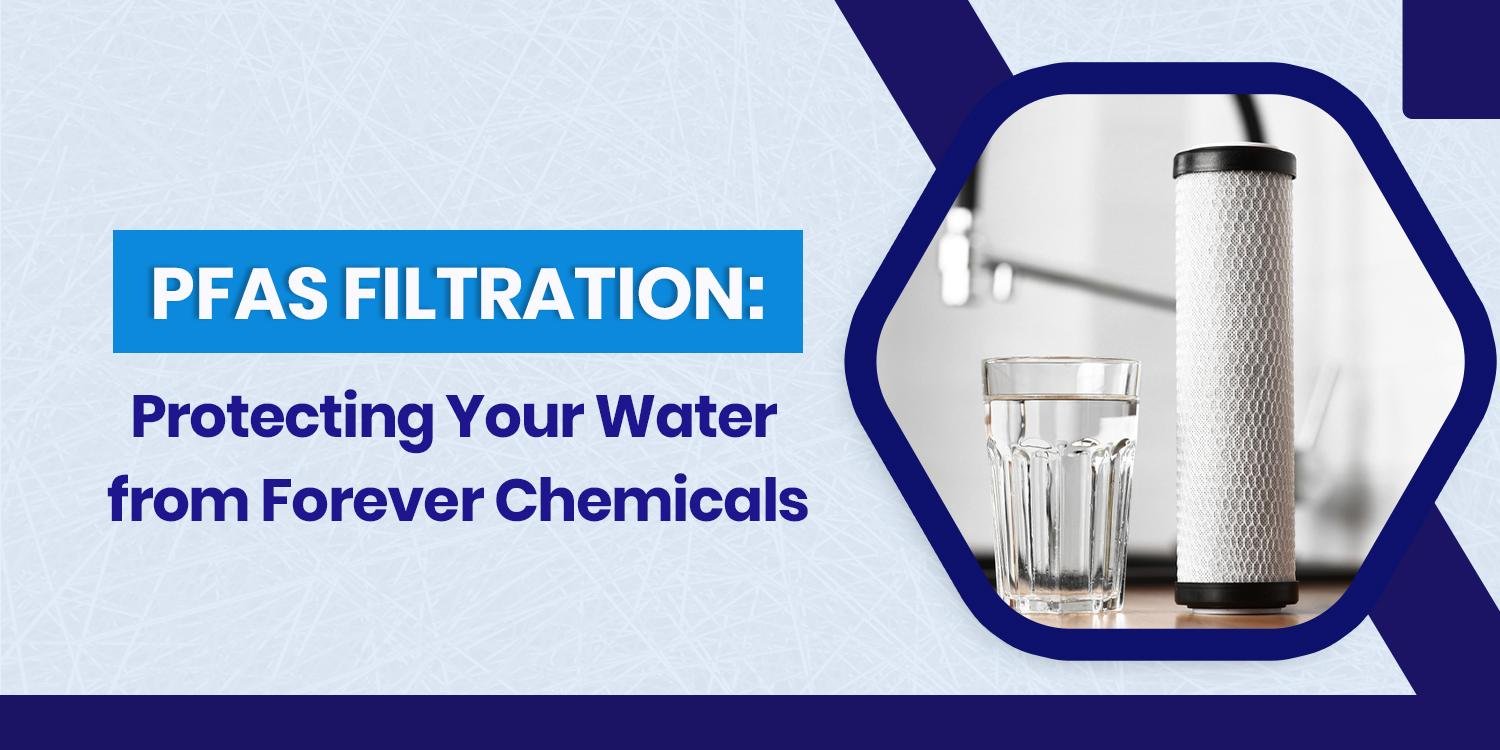PFAS Filtration: Protecting Your Water from Forever Chemicals

Clean water is something most of us take for granted until we realize what might be hiding in it. Across the world, communities are discovering a silent threat known as PFAS, or per- and polyfluoroalkyl substances. These “forever chemicals” are nearly indestructible, building up in our water, soil, and even our bodies. Thankfully, innovative PFAS filtration technologies are emerging to fight back and companies like Matregenix are leading the charge toward safer, purer water.
Understanding the PFAS Problem
PFAS have been used since the 1940s in everything from nonstick cookware and waterproof fabrics to firefighting foams and food packaging. Their remarkable resistance to heat, oil, and water made them industrial heroes but environmental villains. Because PFAS don’t break down easily, they accumulate over time, contaminating drinking water supplies and posing health risks such as hormonal disruption, liver damage, and even certain cancers.
The challenge? Traditional water treatment methods like chlorination or simple carbon filters often fail to remove PFAS effectively. That’s where advanced PFAS filtration technologies come into play, bringing scientific precision to a global problem.
How PFAS Filtration Works
At its core, PFAS filtration focuses on physically and chemically trapping these persistent molecules before they reach your tap. There are several key technologies used today:
-
Activated Carbon Filtration – This method uses highly porous carbon to adsorb PFAS molecules. It’s one of the most common solutions and works best for long-chain PFAS compounds.
-
Ion Exchange Resins – These resins attract and capture PFAS ions from the water through chemical reactions, offering high removal efficiency and longer-lasting performance.
-
Membrane Filtration (Nanofiltration and Reverse Osmosis) – Using ultra-fine membranes, these systems can block even the tiniest PFAS particles, ensuring near-total elimination.
Each technique has its advantages, but the most effective systems often combine multiple methods a hybrid approach that maximizes purity while maintaining cost efficiency.
Why PFAS Filtration Matters
Think of PFAS filtration as an invisible shield. It’s not just about taste or clarity it’s about long-term health and sustainability. According to the U.S. Environmental Protection Agency (EPA), even trace levels of PFAS can be harmful over time. Because these chemicals persist indefinitely, every glass of filtered water represents a step toward reducing overall exposure and protecting public health.
For industries, this technology isn’t optional it’s essential. Food manufacturers, chemical plants, and water utilities all face growing regulatory pressure to monitor and reduce PFAS levels. Reliable PFAS filtration solutions allow these sectors to meet compliance standards, protect communities, and demonstrate environmental responsibility.
Matregenix: Engineering the Future of Clean Water
At Matregenix, innovation meets integrity. The company specializes in nanofiber-based filtration materials designed to remove even the most stubborn contaminants, including PFAS. Through advanced electrospinning technology, Matregenix produces ultra-fine nanofibers with precise pore structures that capture and immobilize harmful substances at the molecular level.
These next-generation filters are lightweight, highly efficient, and customizable for both residential and industrial applications. By integrating nanotechnology with sustainable design, Matregenix is redefining what PFAS filtration can achieve not just removing pollutants, but transforming how we think about water purification itself.
Sustainability Through Science
What sets modern PFAS filtration apart is its commitment to sustainability. Unlike older methods that generate large amounts of waste, advanced nanofiber systems minimize energy use and material consumption. Some filters can even be regenerated, reducing landfill impact and extending service life.
Matregenix’s approach embodies this balance of performance and planet. By using eco-conscious materials and optimizing filter structures for maximum flow and minimal resistance, the company ensures cleaner water with a smaller environmental footprint.
A Safer Tomorrow Starts with Cleaner Water
PFAS contamination is a global challenge but it’s not an unsolvable one. With cutting-edge PFAS filtration technologies, communities can protect their water, health, and future. Whether it’s a municipal water plant or a household under-sink system, the science behind filtration is evolving faster than ever, offering hope against these invisible invaders.
As we move toward a future where clean water is a universal right, innovations from companies like Matregenix remind us that technology, when guided by purpose, can heal the damage of yesterday and safeguard the generations of tomorrow.
Final Thoughts
The story of PFAS filtration is one of resilience a fusion of science, responsibility, and innovation. Every drop of purified water represents progress, and every new filter is a promise that “forever chemicals” don’t have to last forever.
With dedicated research and advanced materials from leaders like Matregenix, we’re not just filtering out contaminants we’re filtering in a cleaner, safer world.
- Art
- Causes
- Crafts
- Dance
- Drinks
- Film
- Fitness
- Food
- Games
- Gardening
- Health
- Home
- Literature
- Music
- Networking
- Other
- Party
- Religion
- Shopping
- Sports
- Theater
- Wellness


